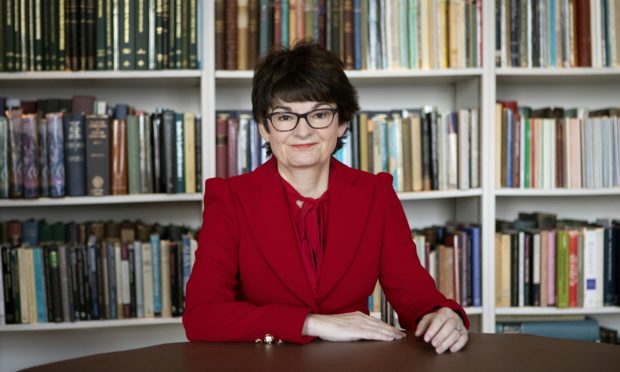St Andrews University is to pursue a “range of efficiencies that will be tough and disappointing”, the principal Sally Mapstone has revealed in her latest message to staff and students.
In a letter sent on Wednesday and seen by The Courier, Professor Mapstone confirmed that 300 university staff have been furloughed with a further 200 posts due to be affected by the government’s job retention scheme.
However, she emphasised that the university was not seeking compulsory redundancies and would not be asking staff to take salary cuts.
The Courier also understands that Professor Mapstone has herself agreed to take a 20% pay cut from her £260,000 salary for the next four months with members of her senior team also agreeing to a cut.
Professor Mapstone gave an update on the impact of the coronavirus pandemic less than a fortnight after she warned St Andrews University faced a £25 million black hole in its finances.
Asking staff and students to “bear in mind the scale of the challenge we face, and the profound personal and financial losses that are affecting so many others in society at this time”, she said the firm commitment not to make compulsory redundancies or cut salaries meant they had no option but to make savings in other areas.
These savings include: cancelling of the 2020 academic promotions round; restrictions on research leave for semester 1 of 20/21; new appointments will be largely suspended across the institution, except in the most pressing cases; re-gradings of staff are being frozen, unless in exceptional cases; over 300 staff from professional services units have been furloughed on full salary, with the expectation that a further 200 members of staff will be furloughed “in the near future”.
Guided by the principle that the university is “one family”, however, she offered words of comfort and hope to staff emphasising that the priority is to “keep that family safe, informed, supported and together as best we can through the acute phases of this global crisis”.
She said: “I particularly want to say a word about our colleagues who have been furloughed, or will be furloughed in future. I understand that at a time like this it can be very unsettling, but please remember you are all valued members of our university who are simply unable to work as you would normally because of the unprecedented circumstances in which we find ourselves.
“Our aim is to get you off furlough and back working as soon as possible.”
Professor Mapstone said the University Court has sanctioned these recovery measures and the campus trade unions have been fully briefed.
She added: “We will come through this, and in many ways be the stronger for it, if we continue the teamwork and collegiality which have been the hallmark of our joint response so far.
“Our decision to settle on a 14 September start to the new academic year with Orientation Week beginning on 7 September allows us to plan in some detail for both our students and our staff, as the country more widely debates the nature and sequence of moves required to transition out of lockdown.
“We will monitor this very carefully, and our planning will be predicated on two key points; the ability to keep our community safe, and a readiness to respond quickly and effectively to circumstances which may change rapidly.”
Meanwhile, despite its financial challenges, St Andrews University will this week be launching a £30,000 community fund as part of its efforts to help the town get back on its feet.
Applications will be accepted from organisations and groups from across Fife providing their activities have an impact on St Andrews and the neighbouring communities or demonstrate a clear opportunity to increase engagement with the university.
The types of projects which are eligible for funding of between £250 and £3000 include those which: benefit communities in the local area (St Andrews and neighbouring communities); increase engagement between the university and the community; promote knowledge exchange and widening participation; promote environmental sustainability; promote diversity and inclusion; and celebrate St Andrews and the local area’s heritage, whether physical or cultural.
Although the fund was conceived before the COVID-19 crisis, the university recognises that key to a community’s recovery and the very fabric of life in communities are the many small voluntary bodies that are responding to the needs of their residents with a will and bravery which must be commended.










